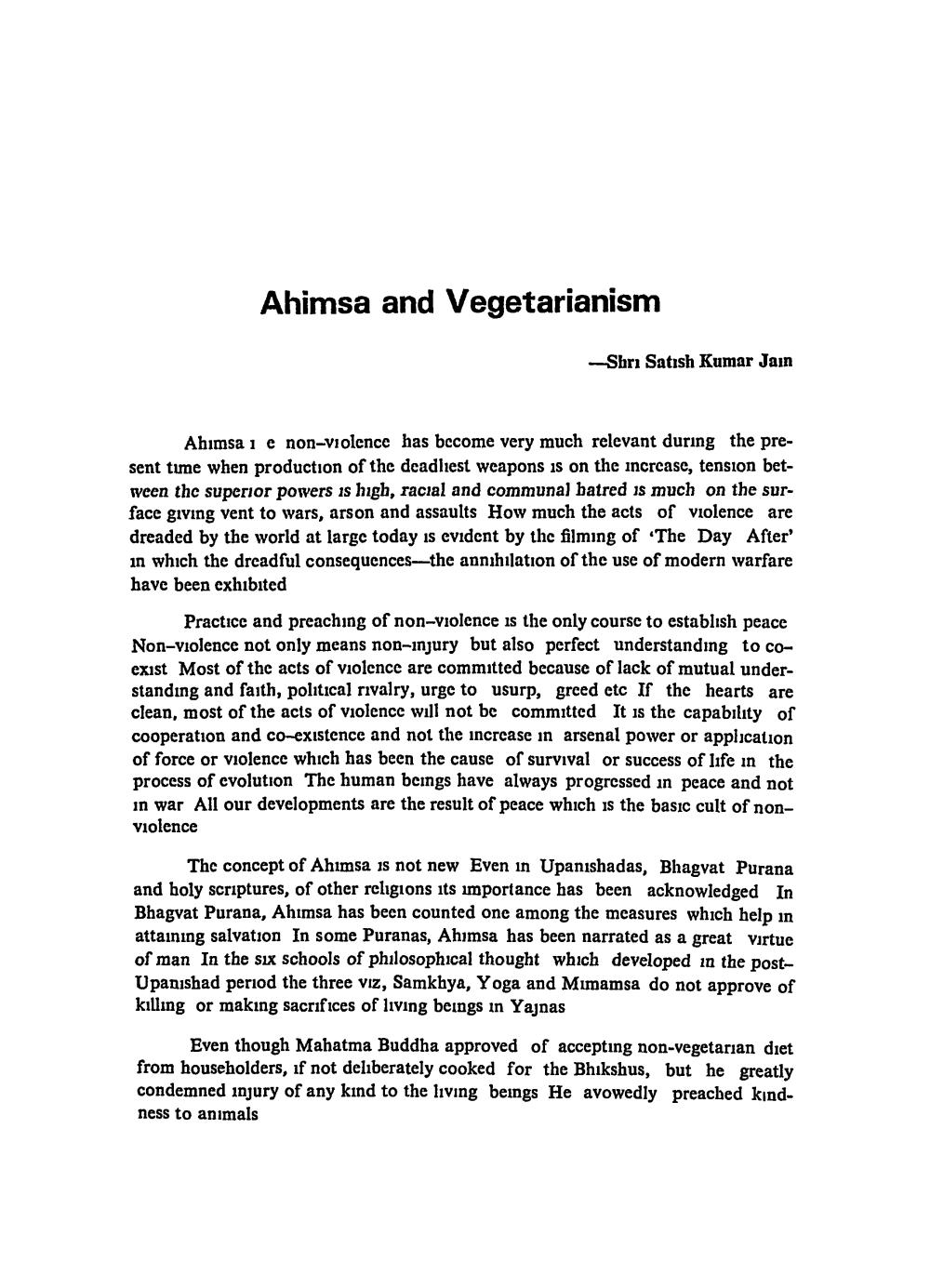________________
Ahimsa and Vegetarianism
- Shri Satish Kumar Jain
Ahimsa i e non-violence has become very much relevant during the present time when production of the deadliest weapons is on the increase, tension between the superior powers is high, racial and communal batred is much on the surface giving vent to wars, arson and assaults How much the acts of violence are dreaded by the world at large today is evident by the filming of 'The Day After in which the dreadful consequences--the annihilation of the use of modern warfare have been exhibited
Practice and preaching of non-violence is the only course to establish peace Non-violence not only means non-injury but also perfect understanding to coexist Most of the acts of violence are committed because of lack of mutual understanding and faith, political rivalry, urge to usurp, grced etc If the hearts are clean, most of the acts of violence will not be committed It is the capability of cooperation and co-existence and not the increase in arsenal power or application of force or violence which has been the cause of survival or success of life in the process of evolution The human beings have always progressed in peace and not in war All our developments are the result of peace which is the basic cult of nonviolence
The concept of Ahimsa is not new Even in Upanishadas, Bhagvat Purana and holy scriptures, of other religions its importance has been acknowledged In Bhagvat Purana, Ahimsa has been counted one among the measures which help in attaining salvation In some Puranas, Ahimsa has been narrated as a great virtue of man In the six schools of philosophical thought which developed in the postUpanishad period the three viz, Samkhya, Yoga and Mimamsa do not approve of killing or making sacrifices of living beings in Yajnas
Even though Mahatma Buddha approved of accepting non-vegetarian diet from householders, if not deliberately cooked for the Bhikshus, but he greatly condemned injury of any kind to the living beings He avowedly preached kindness to animals




